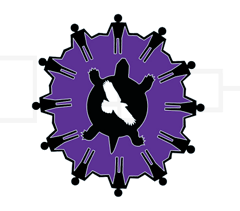Abstract
In any worldview the Self is a central concept. This article summarizes doctoral dissertation research that re-centers a Cherokee American conceptualization of the Self-In-Relationship. In conversational format, the summary details study results that show how a concept analysis methodology plumbs a depth of meaning that a dictionary definition cannot reach in grasping the complex intersection between two meta-worldviews, American Indian and Western. Concepts that emerged about the Self or Self-In-Relationship were held in focus by the Internal Family Systems (IFS) model lens. The conceptualization of Self in the IFS model was found to be resonant with Cherokee American study participants’ narratives and with Cherokee literature about the Self-In-Relationship. Findings from Cherokee descendants’ perspectives may contribute to widening a crosswalk of understanding for those who straddle Cherokee and Western worldviews. Metaphors that emerged from bringing voices from traditional Cherokee knowledge systems into side-by-side interrelationship with voices from Western scholarship re-centered Cherokee conceptual frameworks as foundational for wellbeing and with potential to inform consciousness about healing beyond the sphere of Cherokee culture.
Recommended Citation
McVicker, Suzan A. M. and Walker, Polly O.
(2020)
"A Reconceptualization of the Self-In-Relationship: Contributions from Voices of Cherokee Americans,"
Journal of Indigenous Research: Vol. 7:
Iss.
1, Article 5.
DOI: https://doi.org/10.26077/310q-3p92
Available at:
https://digitalcommons.usu.edu/kicjir/vol7/iss1/5

